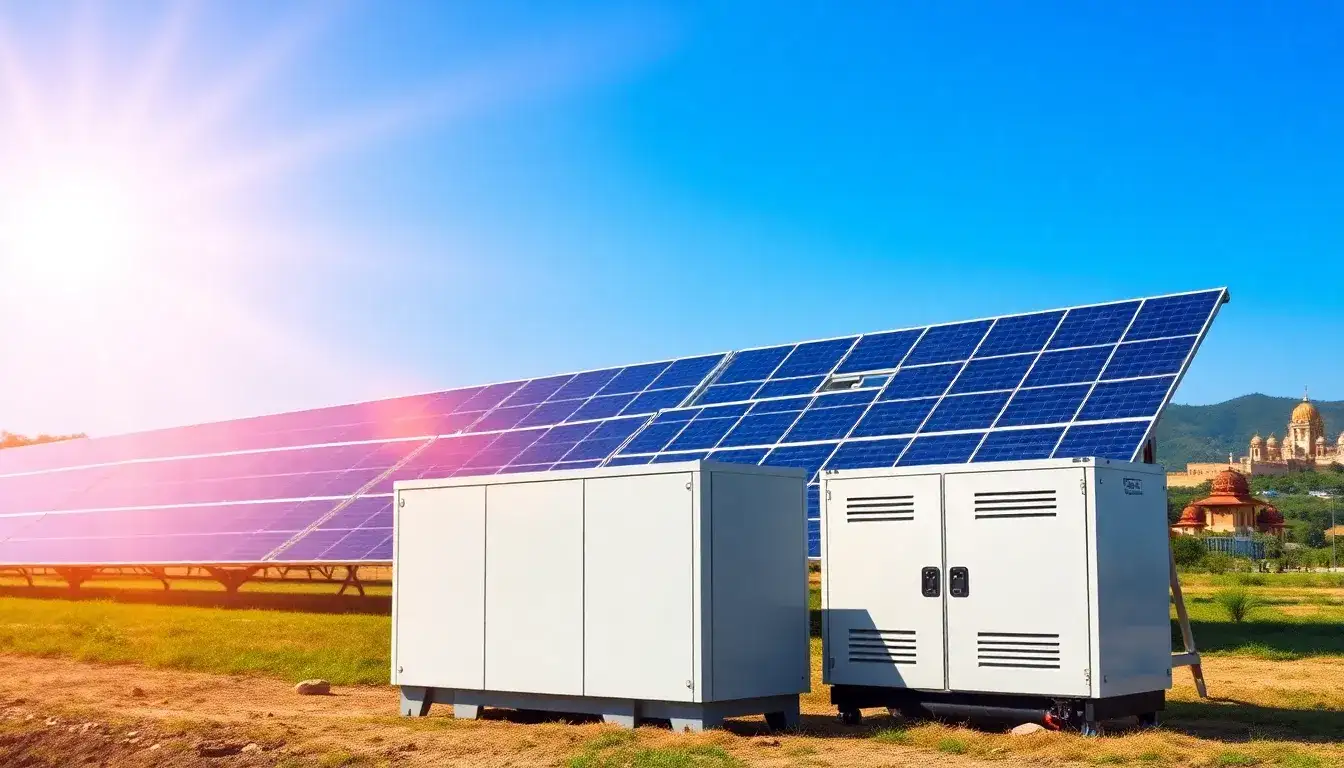New Solar Projects to Feature Two-Hour Energy Storage Systems
In a significant step towards enhancing renewable energy adoption, the Indian government has mandated that all future solar project tenders include energy storage systems with a minimum capacity of two hours. This policy is designed to ensure grid stability and aligns with India’s ambitious renewable energy goals for 2030, aiming to deploy approximately 14 GW of storage-backed solar projects, capitalizing on the decreasing costs of batteries.
According to the latest advisory from the Central Electricity Authority, renewable energy agencies and state utilities must integrate co-located energy storage capacity equal to at least 10% of the installed capacity in all upcoming solar projects. This initiative not only promotes the adoption of energy storage but also encourages state utilities to enter into power purchase agreements.
Additionally, distribution companies are required to implement two hours of energy storage for rooftop solar installations. This approach addresses the intermittency challenges associated with solar power and provides critical support during peak demand periods. The integration of energy storage is expected to enhance grid stability and optimize power supply during hours when solar generation is not possible.
“This initiative aims to accelerate the development of energy storage capacities across the country, ensuring that surplus solar energy generated during the day can be stored for use during non-solar hours. This will facilitate a significant increase in storage capabilities and bolster grid stability,” stated Vikram V, Vice President & Co-Group Head at ICRA.
The government’s annual bidding plan, which targets 50 GW of solar energy, is being managed by four designated agencies, including the Solar Energy Corporation of India (SECI), NTPC, and NHPC. These agencies have been tasked with outlining a compliance mechanism within the tenders to ensure the availability of energy storage during non-solar hours.
The ministry estimates that the implementation of this storage requirement will enable the deployment of approximately 14 GW/28 GWh of storage-backed solar projects by 2030. This initiative is part of India’s broader renewable energy strategy, which aims to achieve a total of 500 GW of renewable energy capacity by 2030. Furthermore, the recent decline in battery prices is anticipated to play a crucial role in lowering power purchase costs during non-solar hours.
Original article by NenPower, If reposted, please credit the source: https://nenpower.com/blog/india-mandates-two-hour-energy-storage-for-new-solar-projects-to-enhance-grid-stability/



